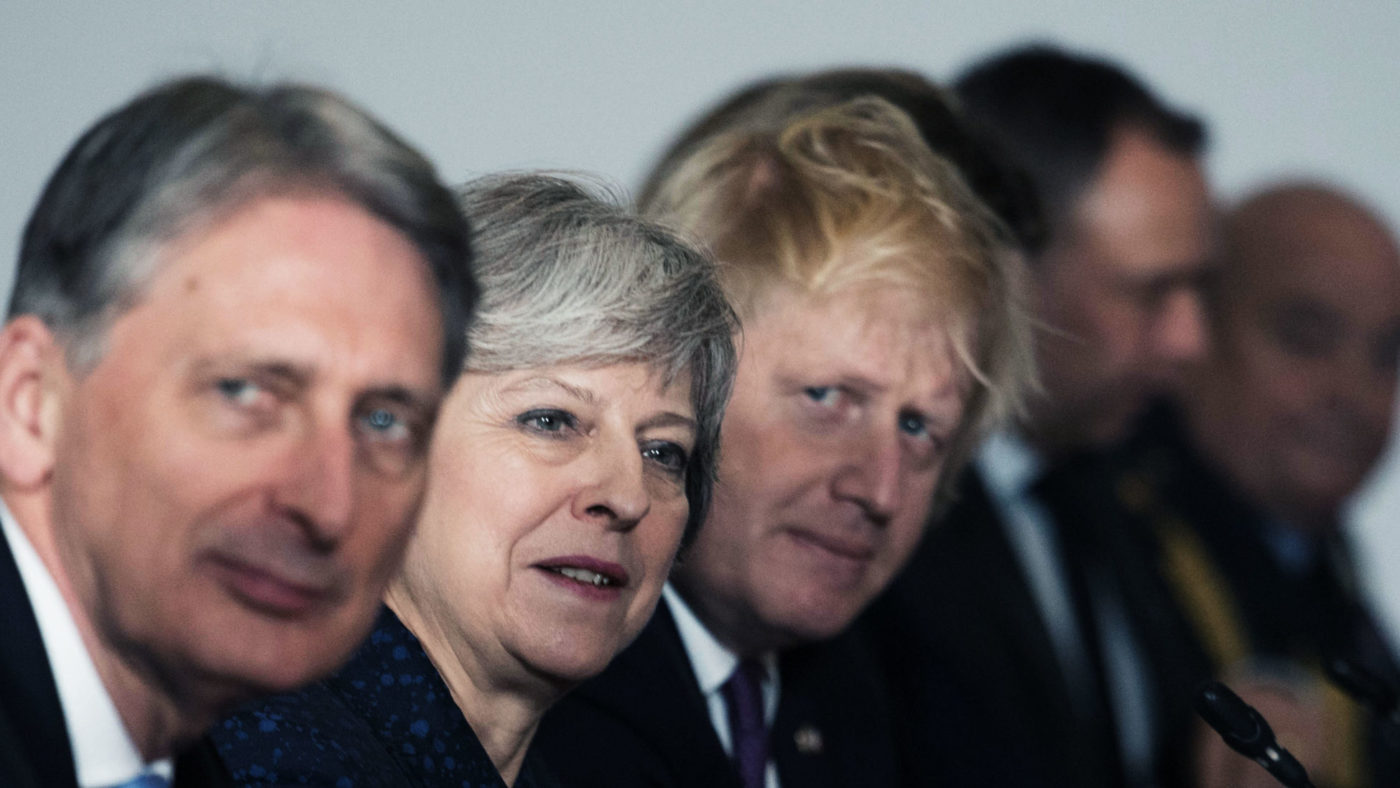Last night, in advance of today’s gathering at Chequers at which the Government may – or, and this is the swell bit, may not! – decide its Brexit policy, a special meeting of Brexit’s proprietors was held at the Foreign and Commonwealth Office. According to multiple reporters, each the beneficiary of leaks being leaked and then tweeted in real time, Boris Johnson welcomed Michael Gove, David Davis, Liam Fox, Esther McVey, Penny Mordaunt and Andrea Leadsom to his department.
A plot was afoot. Again. Could they all resign in protest against Theresa May’s apparent willingness to compromise her way towards Brexit? To be fair, only half the country half hoped they might. The Brexiteers in the Cabinet, however, find themselves on the back foot. This was not the way it was supposed to happen; not the way the game should have been played.
Typically, there was irony aplenty even here. Some of these Cabinet ministers, after all, are Johnny-come-latelys to the Brexit scene. Some even wrote, but did not file, articles endorsing a Remain vote. By contrast, the likes of Daniel Hannan and Douglas Carswell have long been Brexit believers. You might disagree with them but you could respect the depth and consistency of their convictions.
Remarkably, things have reached such a pretty pass that Hannan, who argues compromise should reflect the closeness of the referendum vote, and Carswell, who says he could happily live with EFTA status, are more moderate than the newly-minted Brexiteers inside the Cabinet. To say nothing of the hard core surrounding Jacob Rees-Mogg in the European Research Group.
If we are being charitable, the Prime Minister’s suggestion that “Brexit means Brexit means Brexit” has so thoroughly off-cheesed much of the country that almost anything that looks, walks, smells and quacks like some kind of deal might now be welcome. The failure to prepare seriously for a no-deal outcome betrays previous suggestions that “no deal would be better than a bad deal”.
A bad deal, which is also most probably the only deal available, is better than no deal at all. Business certainly believes so. You can work with a known sub-optimal outcome more easily than you can work with a completely unknown set of problems.
So this is it, at least in theory. D-Day, the day a decision cannot be postponed any further. Unless, of course, it can be and the Government’s can of Brexit fudge is kicked down the road yet again. Still, the “summit” – it’s a sign of how badly everything has been going that a Cabinet meeting has been upgraded to summit status – at Chequers is supposed to be the Great Reveal, the moment at which the Government of the United Kingdom of Great Britain and Northern Ireland decides to choose – and who knows, perhaps stick with – a Brexit policy.
If so, there will be a certain palpable relief felt in much of the country. We long since passed the stage at which the ordinary, concerned, voter could reasonably be expected to take an interest in, far less have a handle on, the detail of the government’s Brexit policies. The twists and turns and agonies endured by Theresa May and her squabbling Cabinet have been too much to bear.
And so there has been a quiet appetite for a decision to be made (at last!) and a policy to be adopted (any policy!). The detail matters less than the general direction of travel and the keen hope that, at last, all this might be beginning to come to an end.
Except, of course, it won’t be and this is so no matter what policy the Government chooses to adopt. Leaked papers suggested the government favours maintaining “a common rulebook for all goods including agri-business” and that the UK will make “an upfront choice to commit by treaty to ongoing harmonisation with the EU rules on goods”. I fancy the electorate could wear this and it has the merit of going a significant way towards solving the Irish border problem.
Whether it can satisfy those Tory MPs who seek a purer-than-pure Brexit might be another matter, not least since regulatory alignment on goods would make a trade deal with the US – an admittedly hypothetical matter – even less likely. But then that became unlikely as soon as Michael Gove told the NFU’s annual conference that we “won’t be signing trade deals that will allow any British produce to be undercut on animal welfare standards”.
The UK government is only one party in this drama however. As Laura Kuenssberg noted on Twitter, much will depend on the EU. If, in their eyes, the UK’s proposals are not “realistic” the “choice becomes again Norway or Canada, high or low alignment, best mates or respectful neighbours, here we go round the mulberry bush again and again and again”. Well indeed.
Hitherto the EU 27 have taken the wholly unsurprising view that, having been repudiated by the United Kingdom, there is little reason for them to accede to very much of anything the UK demands. Why should the 27 do the 1 a favour like that? If that means causing some difficulty, and even some pain, for the EU then so be it.
That will, in any case, be nothing like as agonising as the pain the UK will have inflicted upon itself. This may not be very noble but it is certainly extremely political. And, as I say, was wholly, entirely, obviously, predictable.
Getting a proposal through the Cabinet, and then the House of Commons, then is only the first part of the latest scene in this exhausting drama. It might even be the easier part. Getting the EU to agree is a fish of an entirely different kettle. Even is a deal is reached, it is going to be the kind of deal that risks pleasing no-one. A least bad Brexit that’s also achievable is not the kind of thing to gladden or lift hearts.


